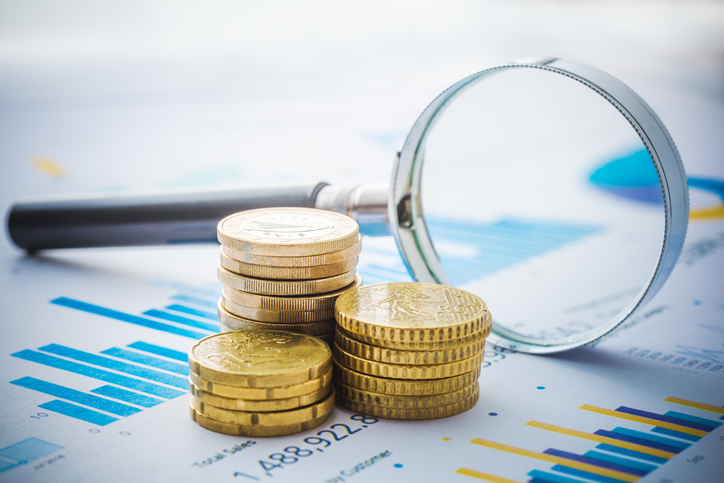Higher interest rates cause bank dividends to rocket
Total banking payouts jumped by one-third in 2023, reports Sam Benstead.
25th January 2024 10:11
by Sam Benstead from interactive investor

Last year, for the first time since the 2008 global financial crisis, banks paid more dividends than any other investment sector in the UK.
Higher interest rates caused this change as the net interest margin – the difference between what a bank receives in interest from lending money compared with what it pays on its deposits – has increased.
- Invest with ii: Open an ISA | ISA Investment Ideas | ISA Offers & Cashback
Data from Computershare, an asset administration company, showed that during the fourth quarter of 2023 dividend growth accelerated to an underlying 15.6%.
This was largely driven by HSBC Holdings (LSE:HSBA), which fully restored quarterly payouts in 2023 for the first time since the pandemic and regained its position as the UK’s largest payer – a spot it last held in 2008.
- The highest-yielding money market funds to park your cash in
- This market is the most obvious contrarian bet right now
HSBC’s impact and growth across the sector meant that, for the second year running, banks made the largest contribution to UK dividend growth, between them raising their payouts by almost a third to £13.8 billion in 2023.
For the market as whole in 2023 UK dividends rose 5.4% on an underlying basis (which excludes special dividends) to £88.5 billion in 2023, although lower one-off special dividends pulled the headline total down 3.7% to £90.5 billion.
Mark Cleland, of Computershare, said: “The return to prominence by the banks is really remarkable. Thirteen years of rock-bottom interest rates made it very hard for the sector to make profits, but the need to quell inflation with higher interest rates means the last two years have delivered a dramatic turnaround. Bank investors are reaping the dividends of this reversal and we expect them to see even larger payouts in 2024.”
- Interest rate fund and trust losers stage a recovery – but will it last?
- Time to buy heavily discounted Baillie Gifford investment trusts?
Oil and utility dividends were also key contributors to growth last year. Computershare found that high energy prices drove a 15.8% increase in dividends from the oil sector. Inflation-linked dividend policies meant record dividends from utilities.
The mining sector made a large negative impact, as commodity prices fell last year. However, it was the highest-paying sector in 2022 as commodity prices spiked that year following the end of pandemic restrictions.
The total paid in the sector fell by £4.5 billion, or by more than a quarter year-on-year. Despite this, the mining sector still accounted for £1 in every £8 distributed by UK companies last year.
Looking ahead, Computershare forecasts higher special dividends driving headline growth of 3.7% to £93.9 billion in 2024. It expects underlying growth of 2% delivering regular payouts of £89.8 billion.
- Magnificent Seven: time to take profits? Here’s what the pros think
- Terry Smith adds tech stock owned by Smithson to flagship portfolio
Higher share prices and relatively muted dividend growth mean the prospective yield on UK equities has fallen to 3.9%.
Cleland adds: “There was a lot to be cheerful about in 2023, even if lower one-off payments masked the solid progress UK dividends made. UK plc is generating a lot of cash, which means underlying dividend growth was very encouraging in 2023.”
James Lowen, manager of the JO Hambro UK Equity Income fund, said this year the key areas of dividend strength will be the oil, banking and insurance sectors.
“These sectors, along with the mining sector, make up most of our large-cap holdings, approximately 50% of the fund. More broadly, post-Covid-19 aggregate dividend cover is very strong and over half the fund is currently engaged in share buybacks, reflecting strong balance sheets.”
These articles are provided for information purposes only. Occasionally, an opinion about whether to buy or sell a specific investment may be provided by third parties. The content is not intended to be a personal recommendation to buy or sell any financial instrument or product, or to adopt any investment strategy as it is not provided based on an assessment of your investing knowledge and experience, your financial situation or your investment objectives. The value of your investments, and the income derived from them, may go down as well as up. You may not get back all the money that you invest. The investments referred to in this article may not be suitable for all investors, and if in doubt, an investor should seek advice from a qualified investment adviser.
Full performance can be found on the company or index summary page on the interactive investor website. Simply click on the company's or index name highlighted in the article.